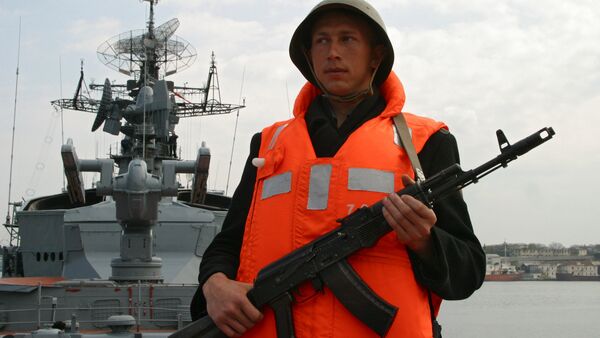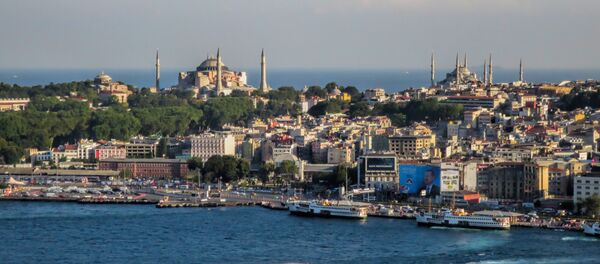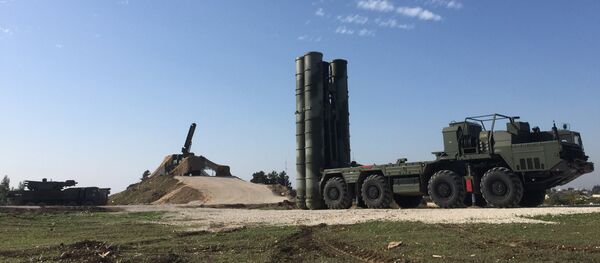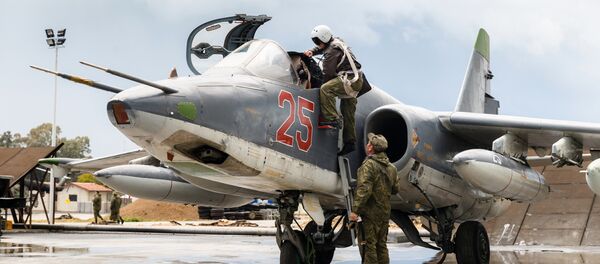It is important that the West does not allow Russia to dominate in the Black Sea, Paul Coyer of Forbes insists, pointing to the fact that Russia has largely upset NATO's applecart in the region.
"Ceding control of the Black Sea to Moscow would have negative strategic consequences far beyond the issue of military advantage in the Black Sea itself, and the lack of a comprehensive strategy toward Russia (and such a strategy has been lacking since the end of the Cold War) on the part of the United States and NATO has given Vladimir Putin room to maneuver that he otherwise would not have had," Coyer claims in his recent article.
It is worth mentioning that less than two weeks ago — between July 8 and July 17 — Bulgaria hosted "Breeze 2016" joint naval drills comprising 25 naval vessels from Bulgaria, Romania, Greece, Spain and Turkey, two aircraft and two helicopters, and 1,700 troops.
Ahead of a series of naval exercises Russia expressed its protest against the presence of US and NATO warships in the region citing the 1936 Montreux Convention that restricts the passage of warships not belonging to Black Sea states.
Remarkably, on July 17 Russia announced that it will deploy its cutting-edge air defense systems, the S-400 Triumf, to Crimea in August, thus bringing the peninsula's defense to "a whole new level."
Joshua Kucera, an independent US journalist specializing in foreign affairs and international relations, noted in his analysis for Eurasianet.org that "the S-400 announcement was made as two simultaneous NATO naval drills take place in the Black Sea."
Russia is boosting its air defense in Crimea and with good reason.
In his article for the influential Atlantic Council, Dr. Ariel Cohen called upon the Warsaw Summit participants for "defensive realignment" in the Black Sea.
"The Alliance must focus on a range of actions to address Russia's rapidly escalating offensive posture in the Black Sea and protect its allies-including reinforcing air, naval, and ground assets; improving space capabilities; cyber security; reconnaissance; intelligence; and creating credible deterrence strategies," Ariel Cohen wrote on July 5, citing a non-existent "Russian threat."
Cohen pointed out that "the obsolete navies of Bulgaria and Romania" remain unprepared for "future Russian aggression." So far, Turkey "has to play a pivotal role in this defensive realignment, which aims to protect NATO members and partners" from Russia.
In an apparent attempt to evade the restrictions imposed by the Montreux Convention, Ariel Cohen offered to "reflag some NATO naval assets under the three Black Sea members' flags to boost permanent naval capabilities in the theater."
"In Warsaw, NATO needs to reestablish the Alliance's credibility, capabilities, coordination, and deterrence efforts in the Black Sea," the scholar claimed.
However, as Kucera noted in his analysis, at its Warsaw Summit the Alliance "put off a decision on creating some sort of permanent NATO naval structure in the Black Sea."
Echoing Cohen, Paul Coyer emphasizes that Turkey "has been among the most active in cooperating with the fellow littoral navies in a show of resolve not to cede control of the Black Sea to Russia."
Indeed, the alliance had regarded Turkey as its mighty bulwark against Russia in the Black Sea region until Erdogan's unexpected political shift to Moscow.
The sudden change of heart was marked by Erdogan's making an apology for downing the Russian Su-24. Predictably, following the move the Turkish leader was nearly ostracized during the Warsaw NATO Summit.
Moreover, the failed coup attempt in Turkey has driven a wedge between NATO and its longstanding Middle Eastern member.
"Moscow's interest in the recent failed coup in Turkey, and in developments in the coup's aftermath, will ensure that Russia pulls out all of the stops in an effort to shift Turkey's alignment. The tipping point at which Turkey finds itself right now gives Russia the greatest opportunity it has had in recent memory to do so," Coyer claimed.
However, it should be noted that NATO members themselves alienated Turkey by not lending their helping hand to its leader during the attempted military coup.
In any event, it seems that Russia has upset NATO's plans to bolster its military control over the Black Sea region.





